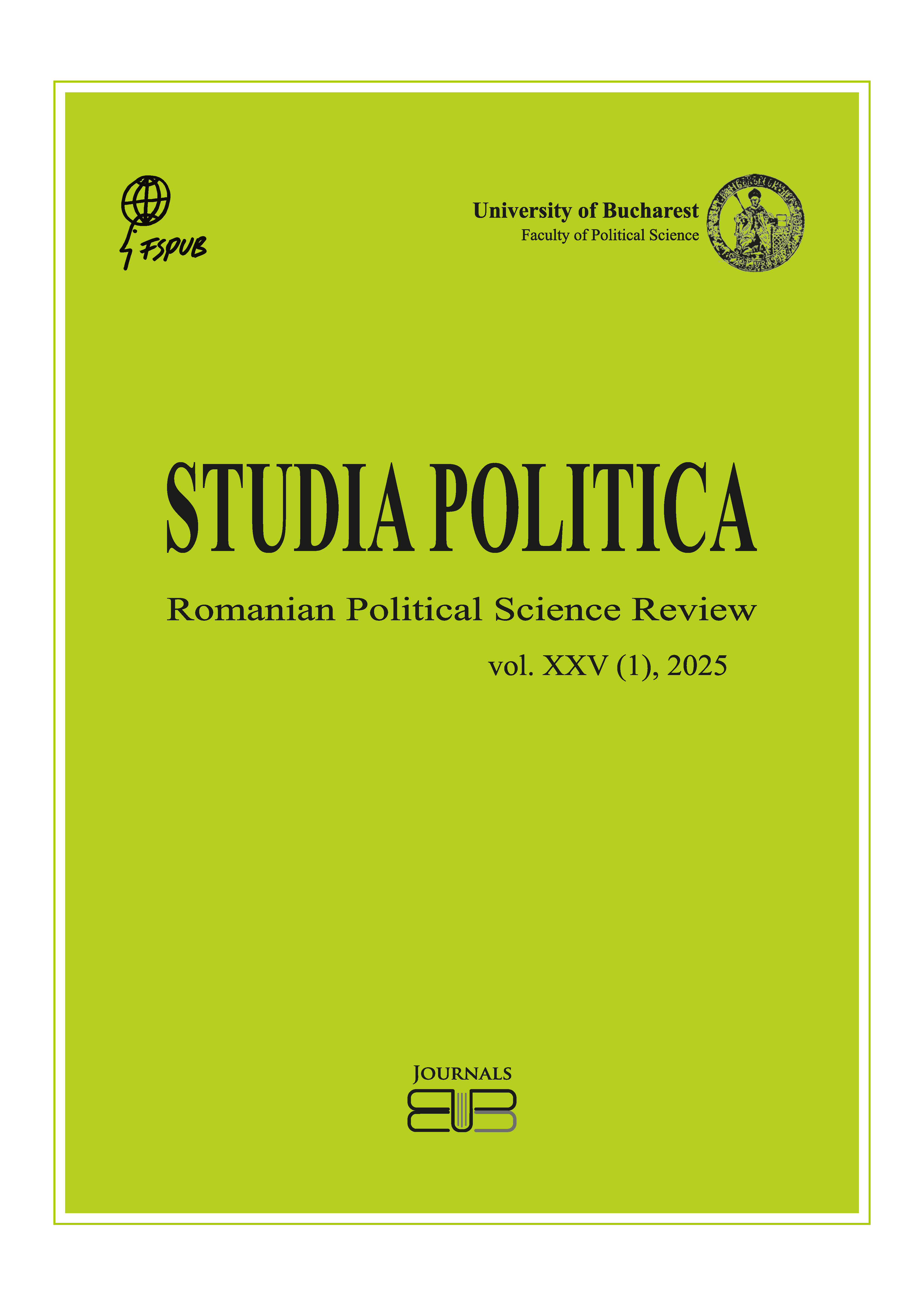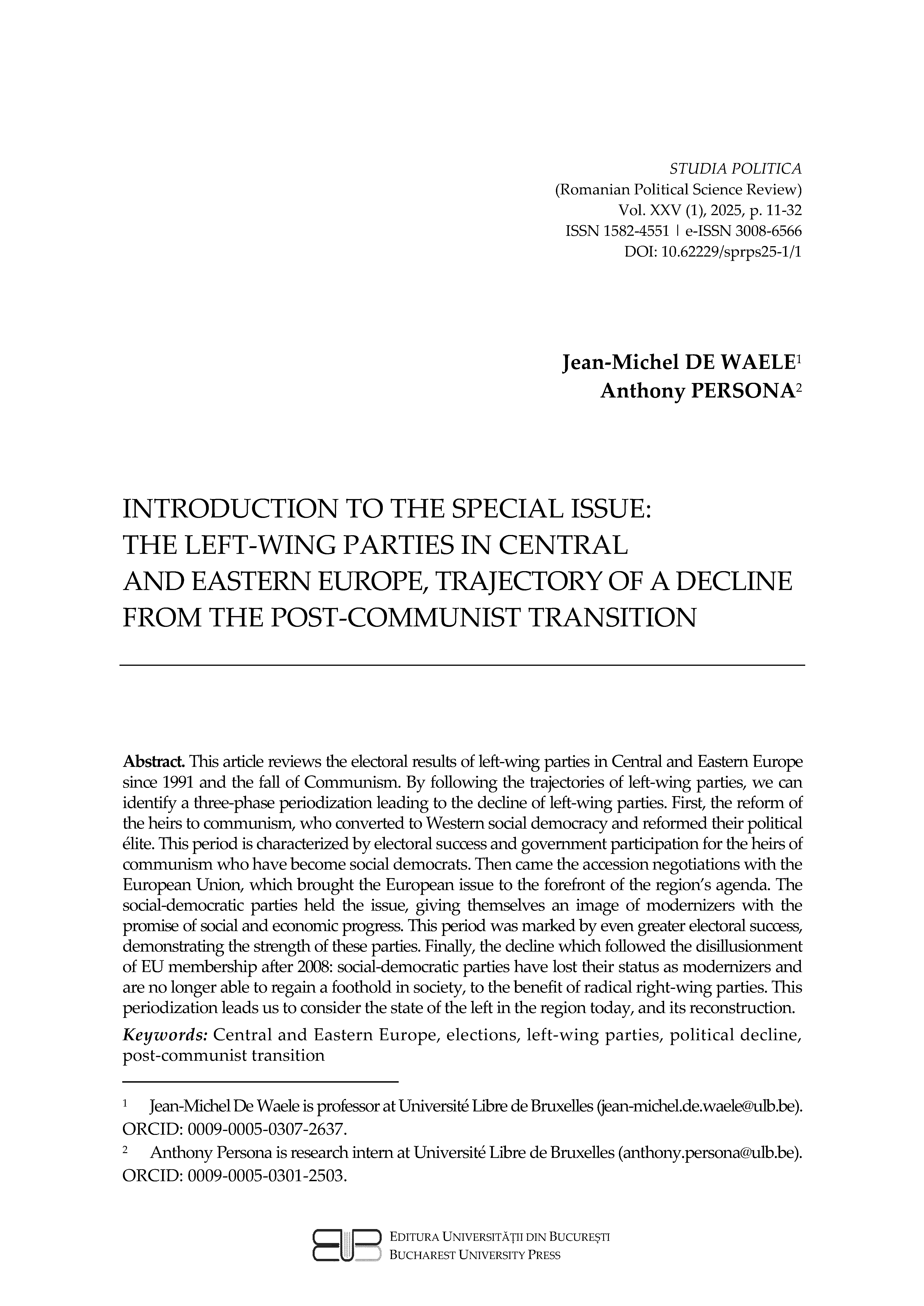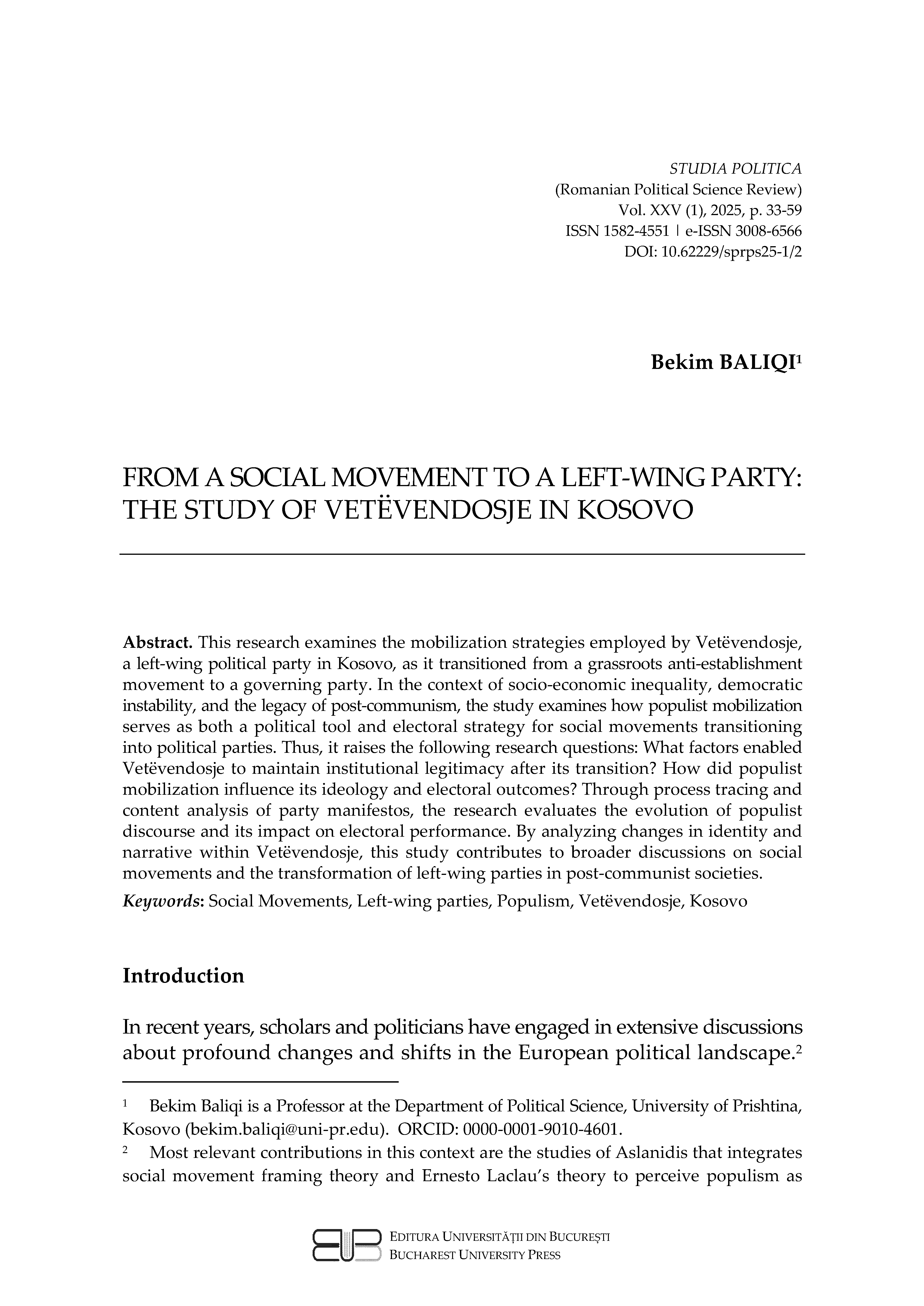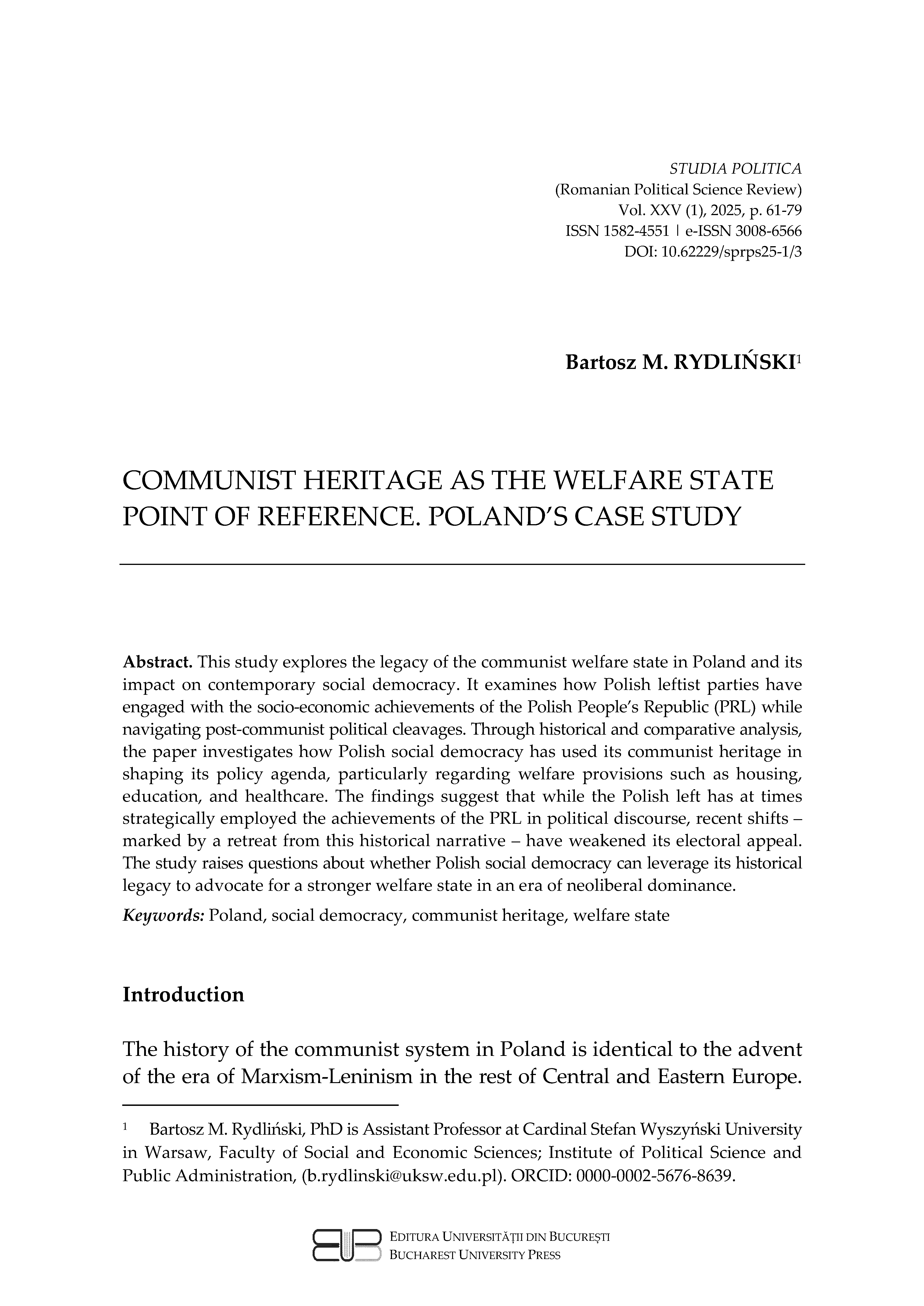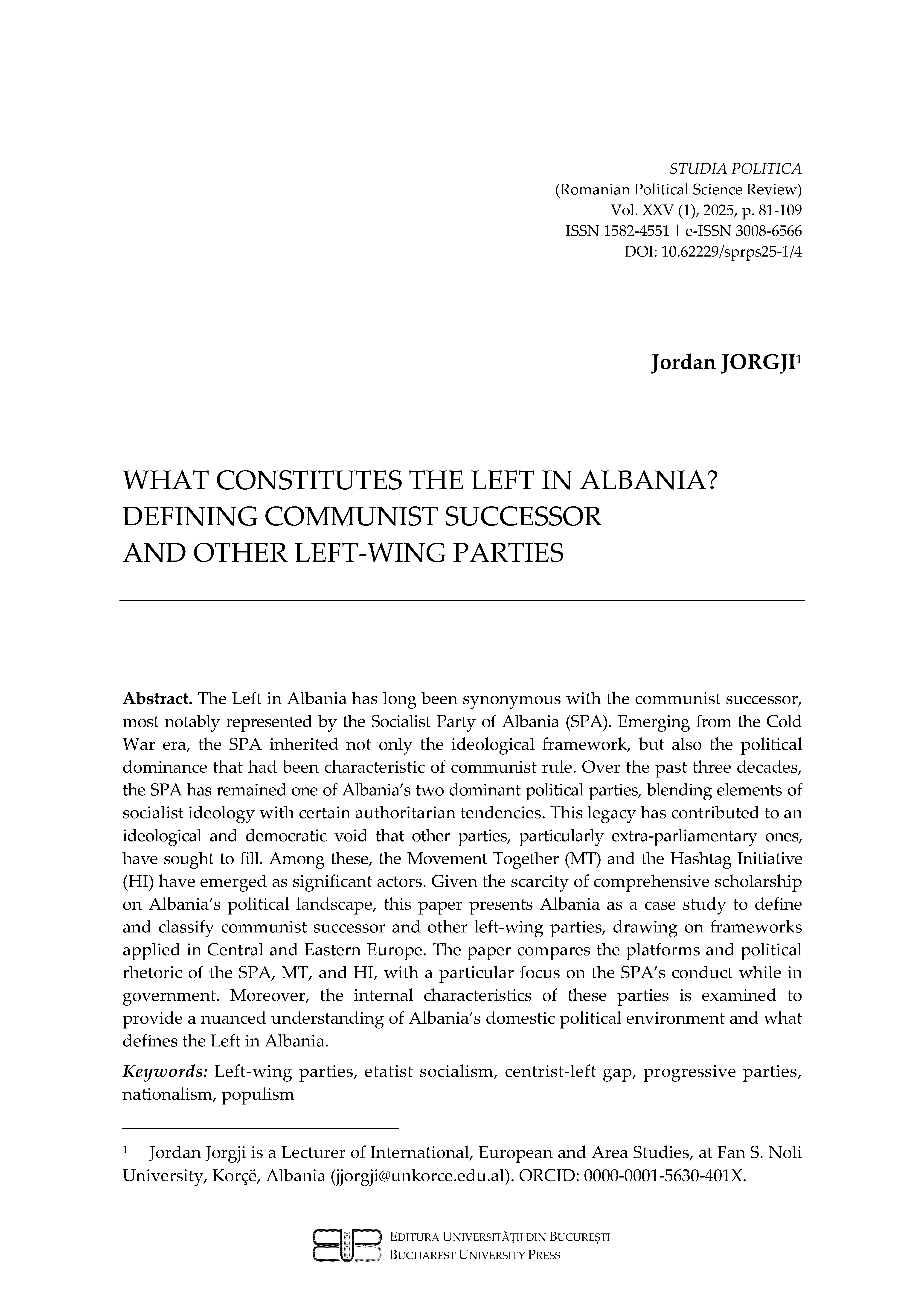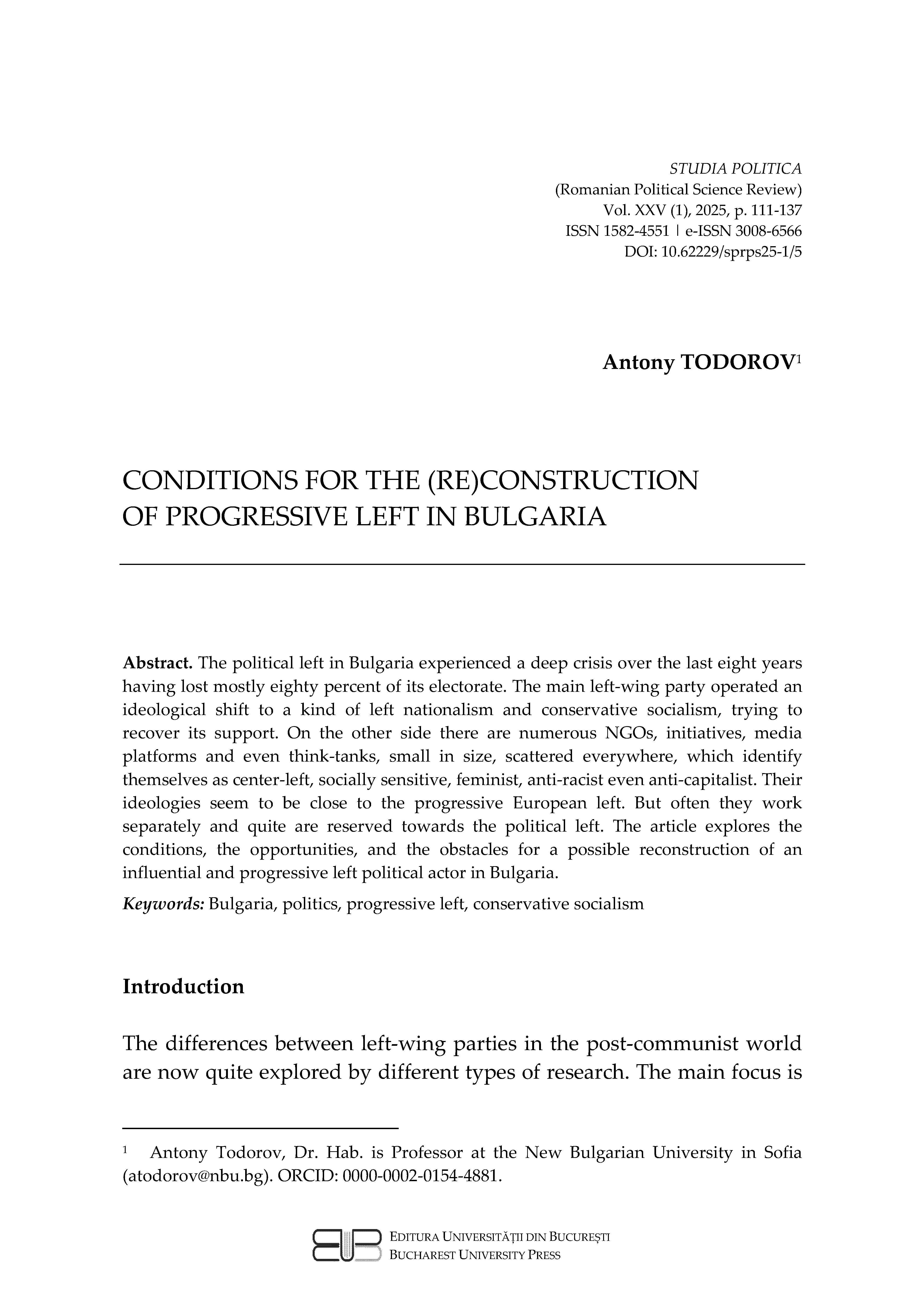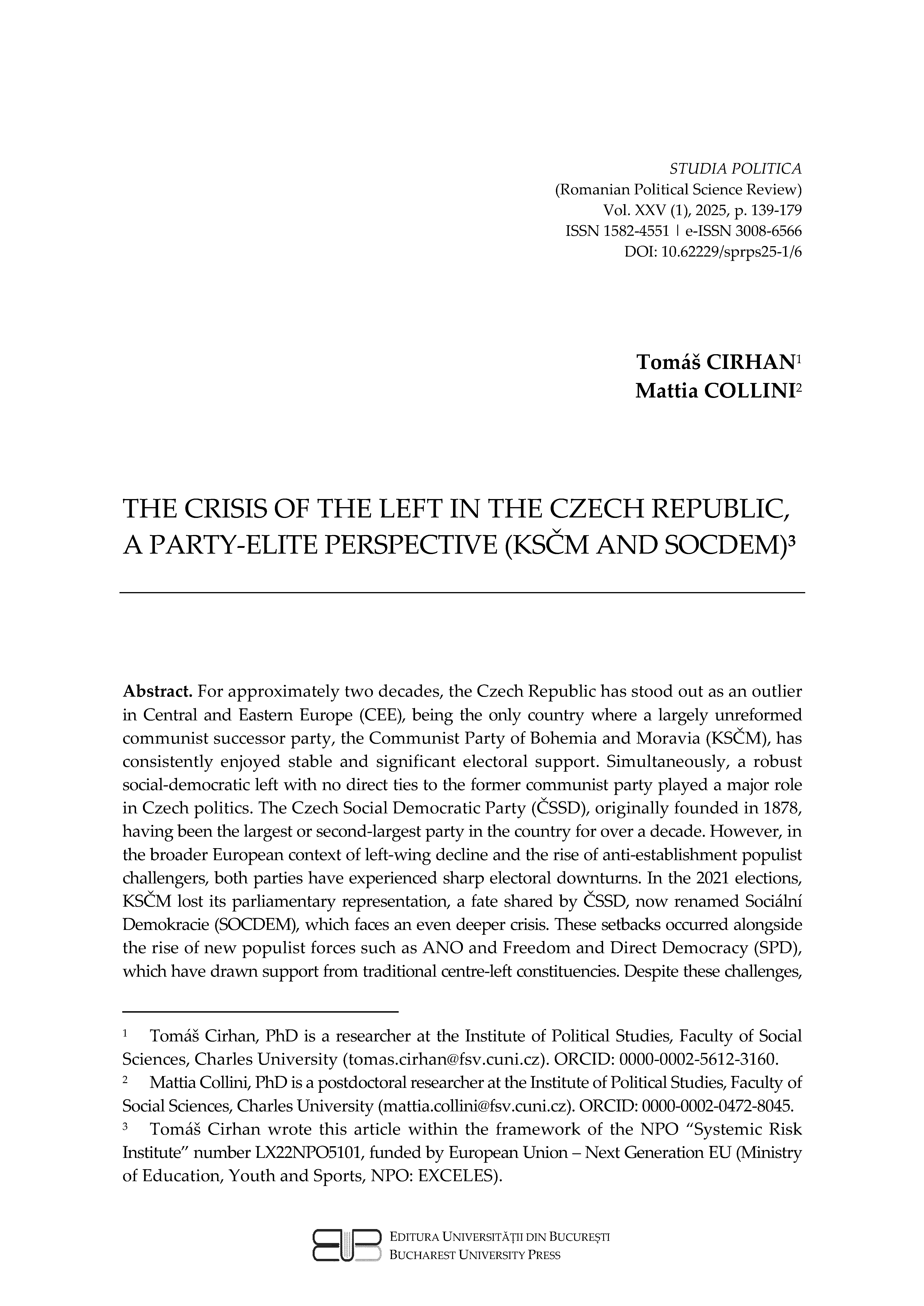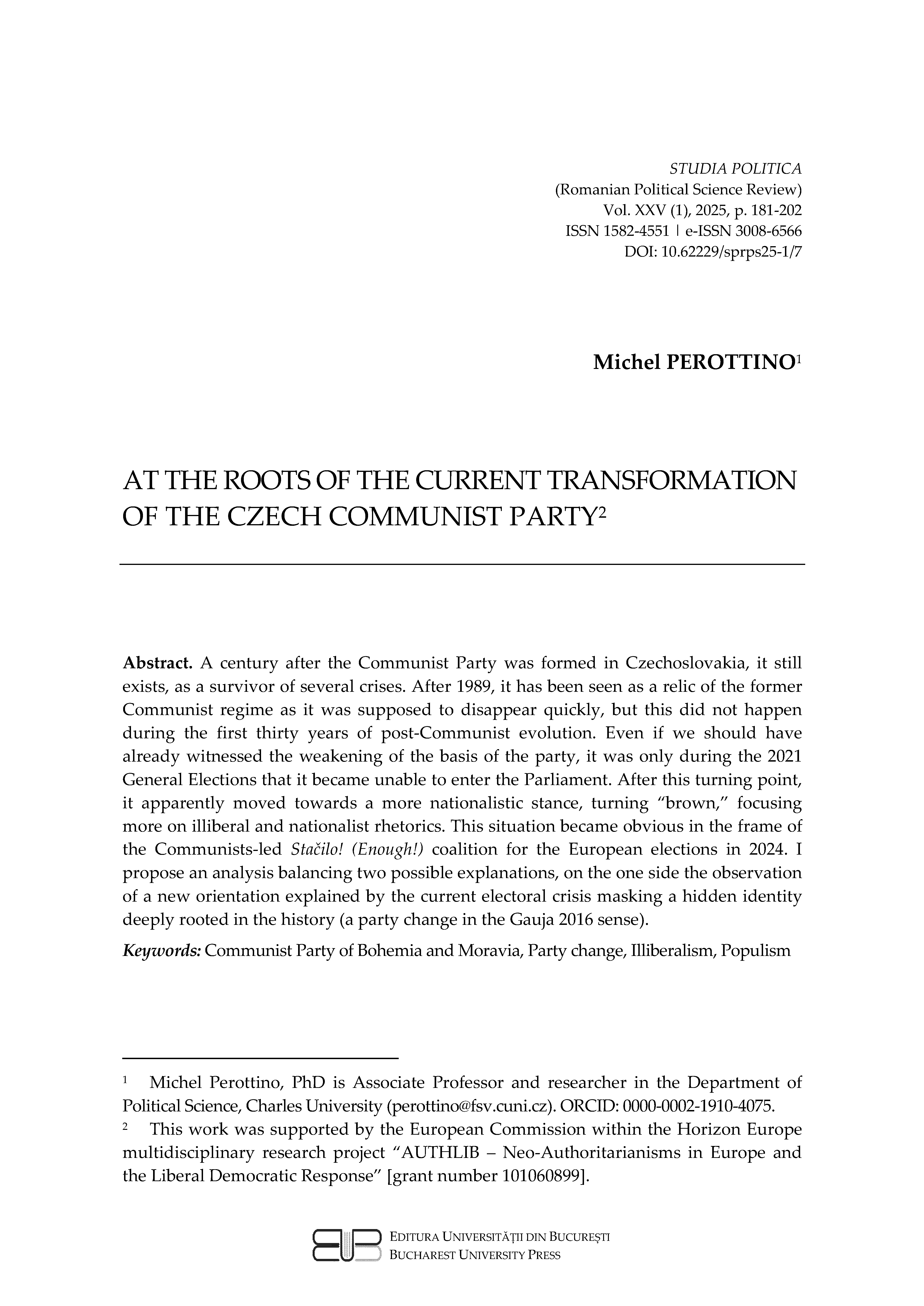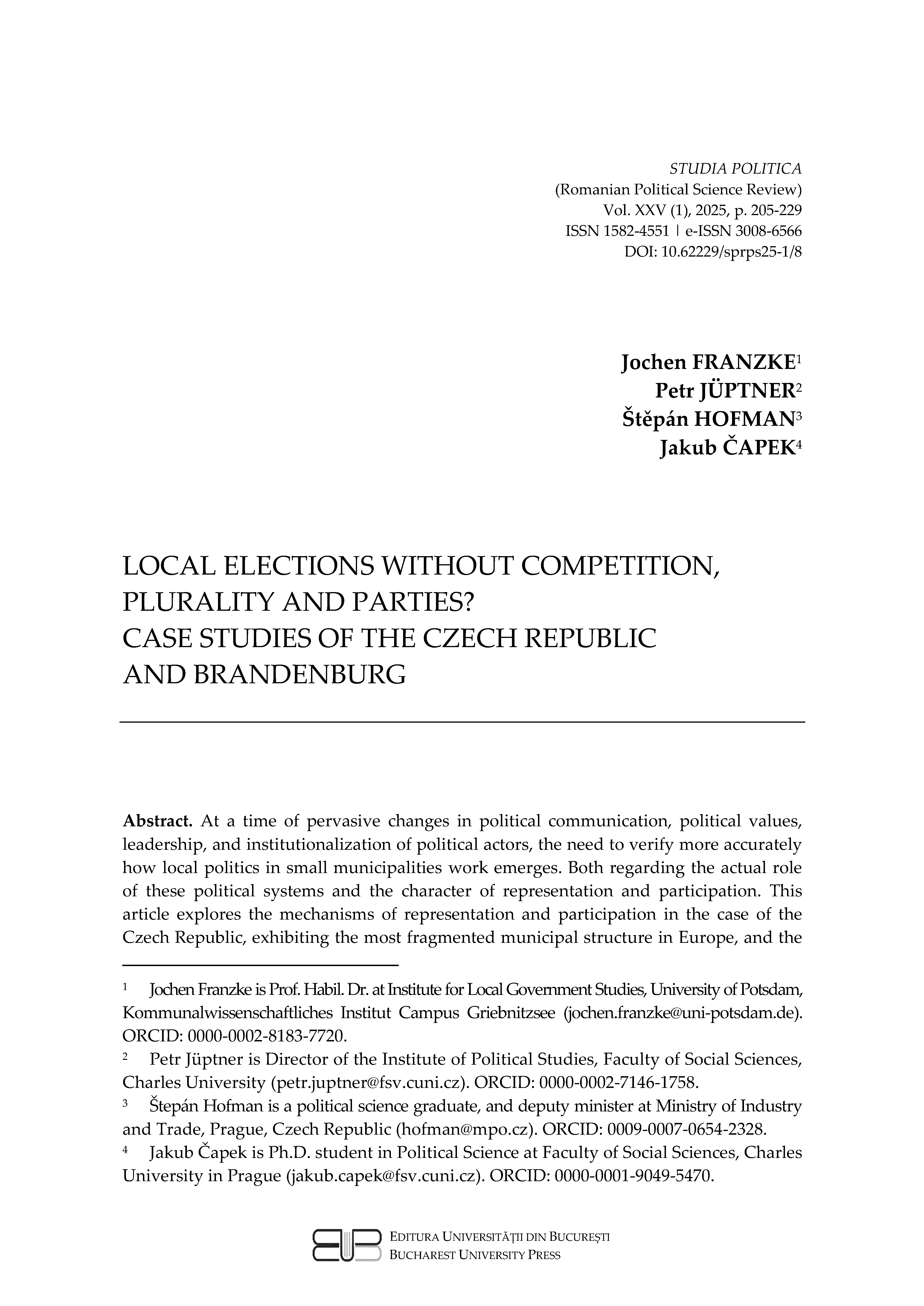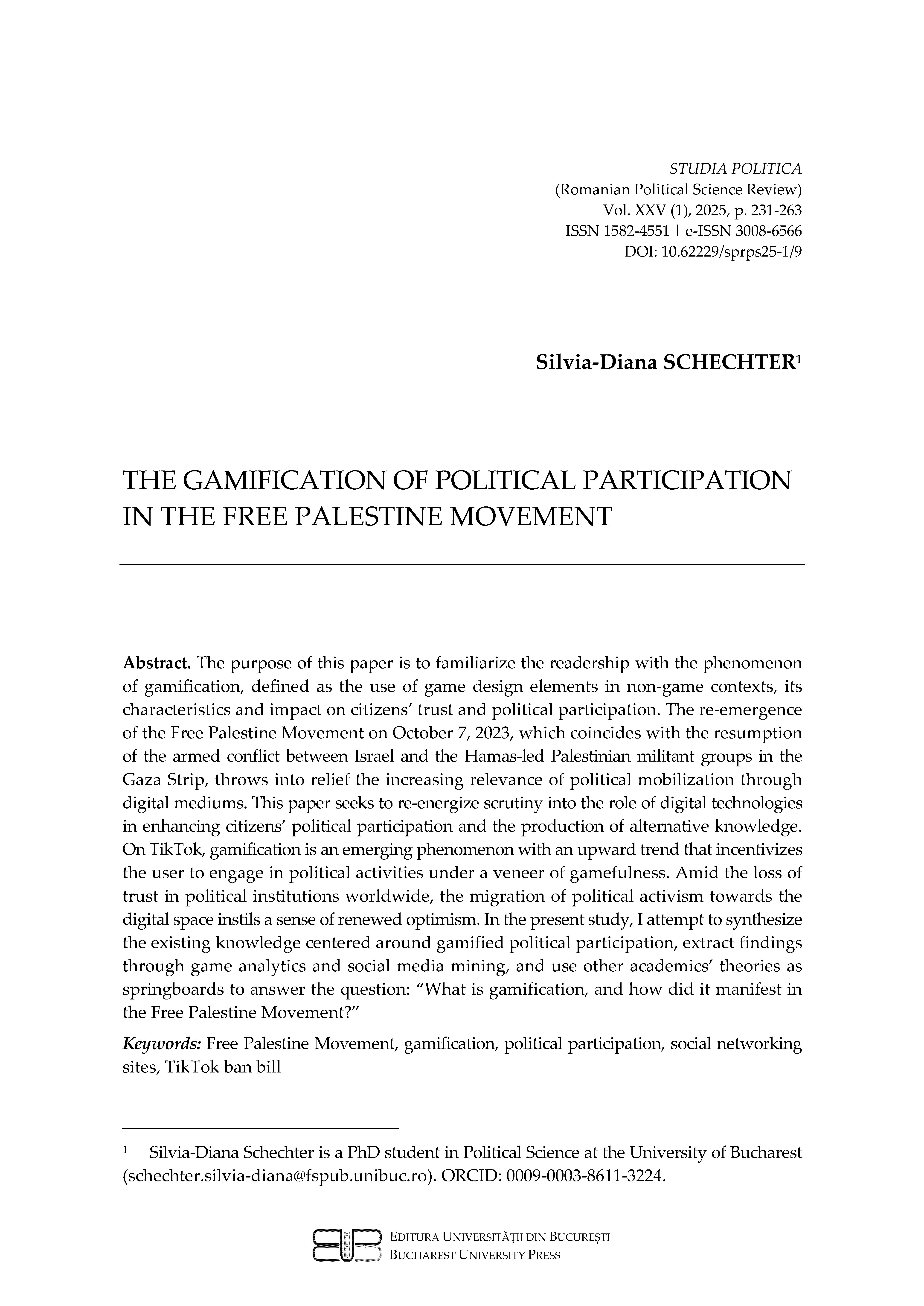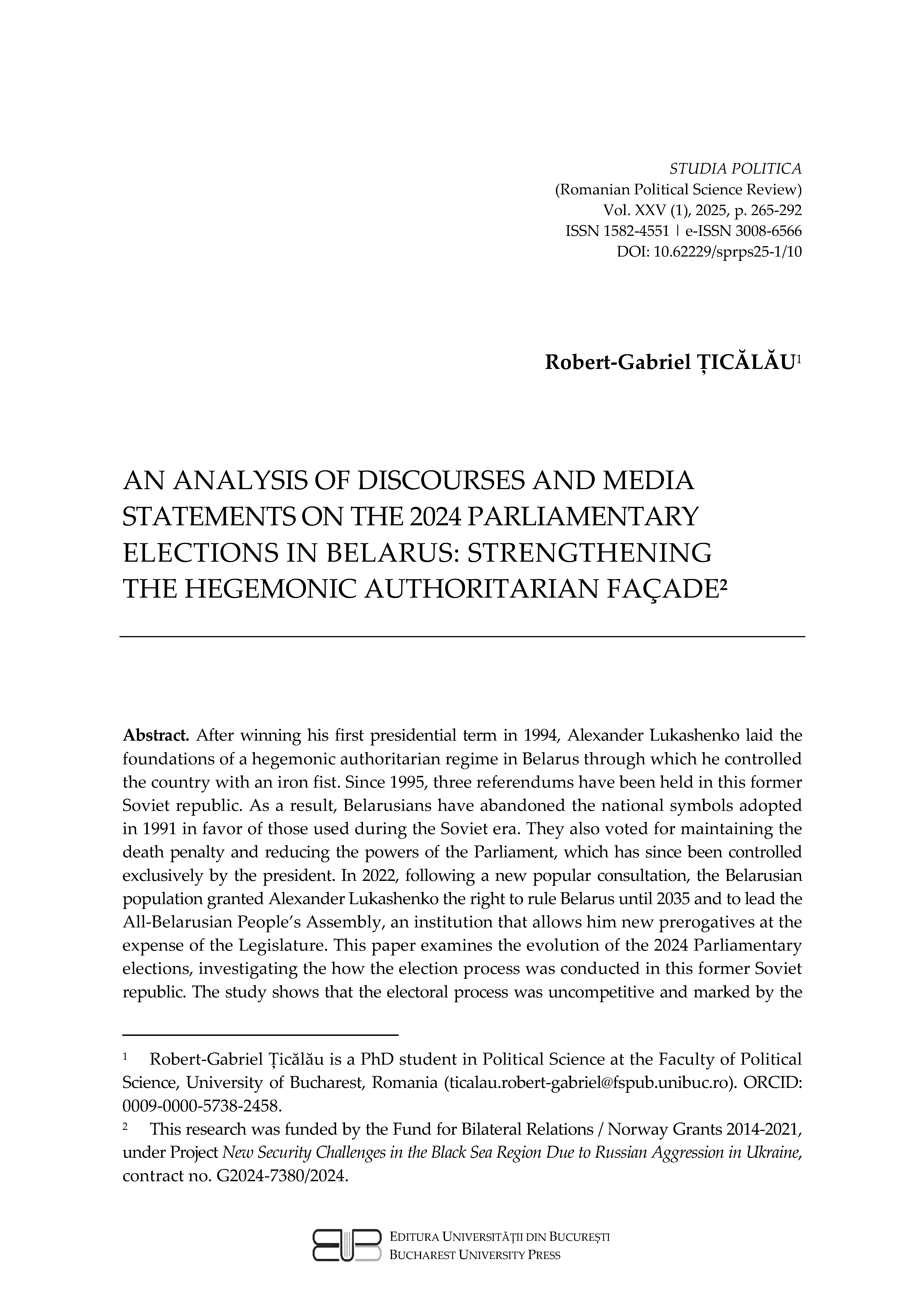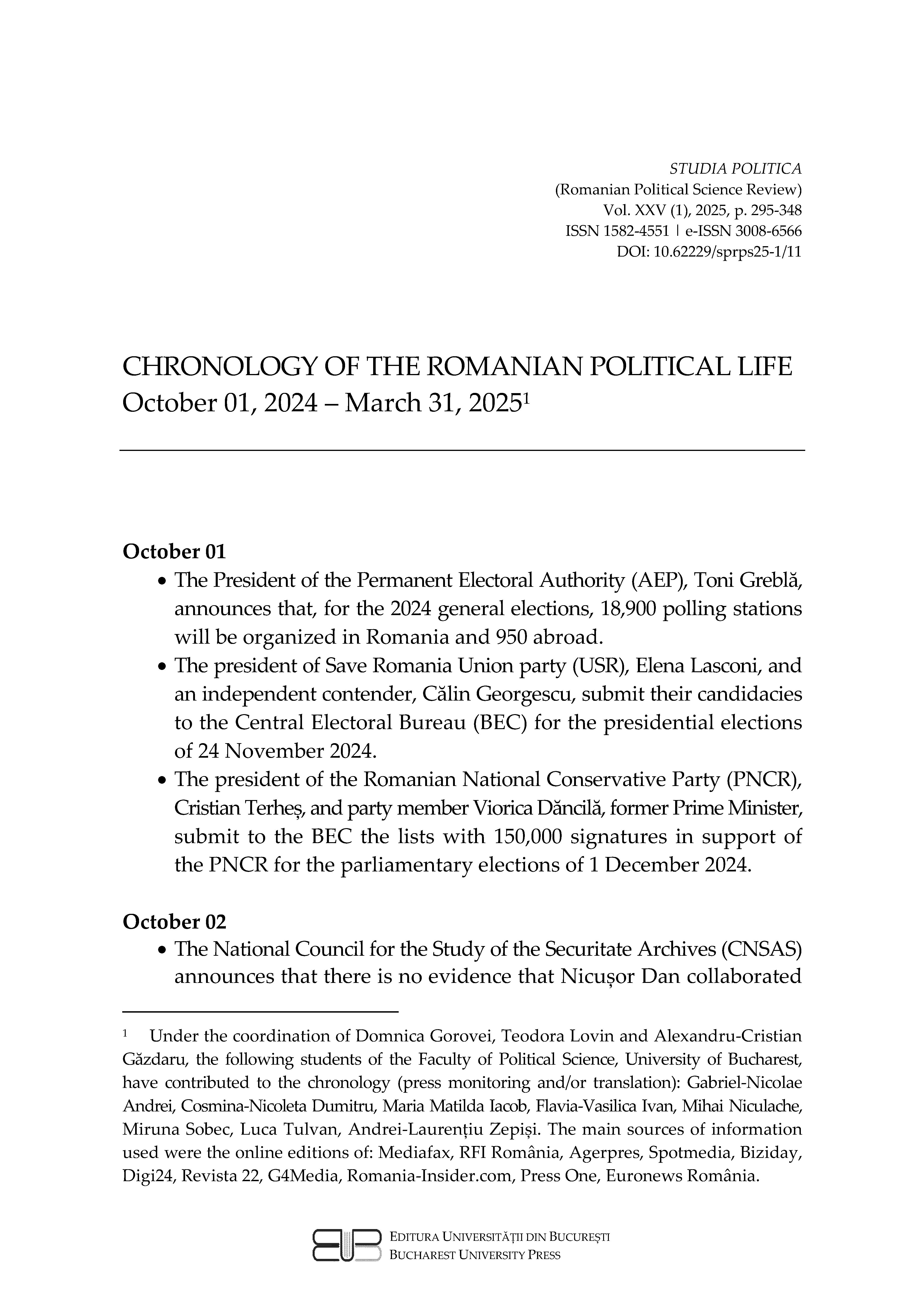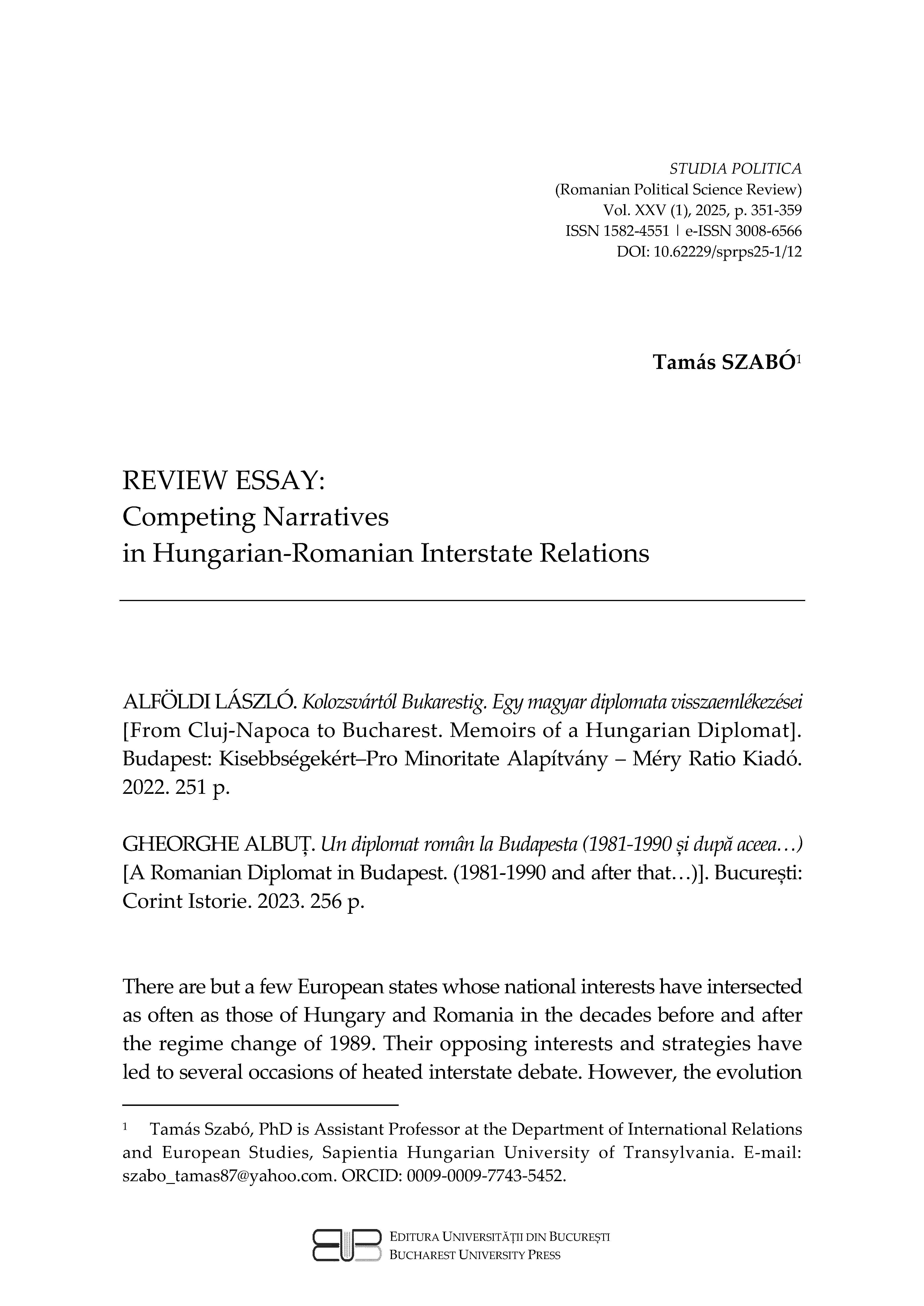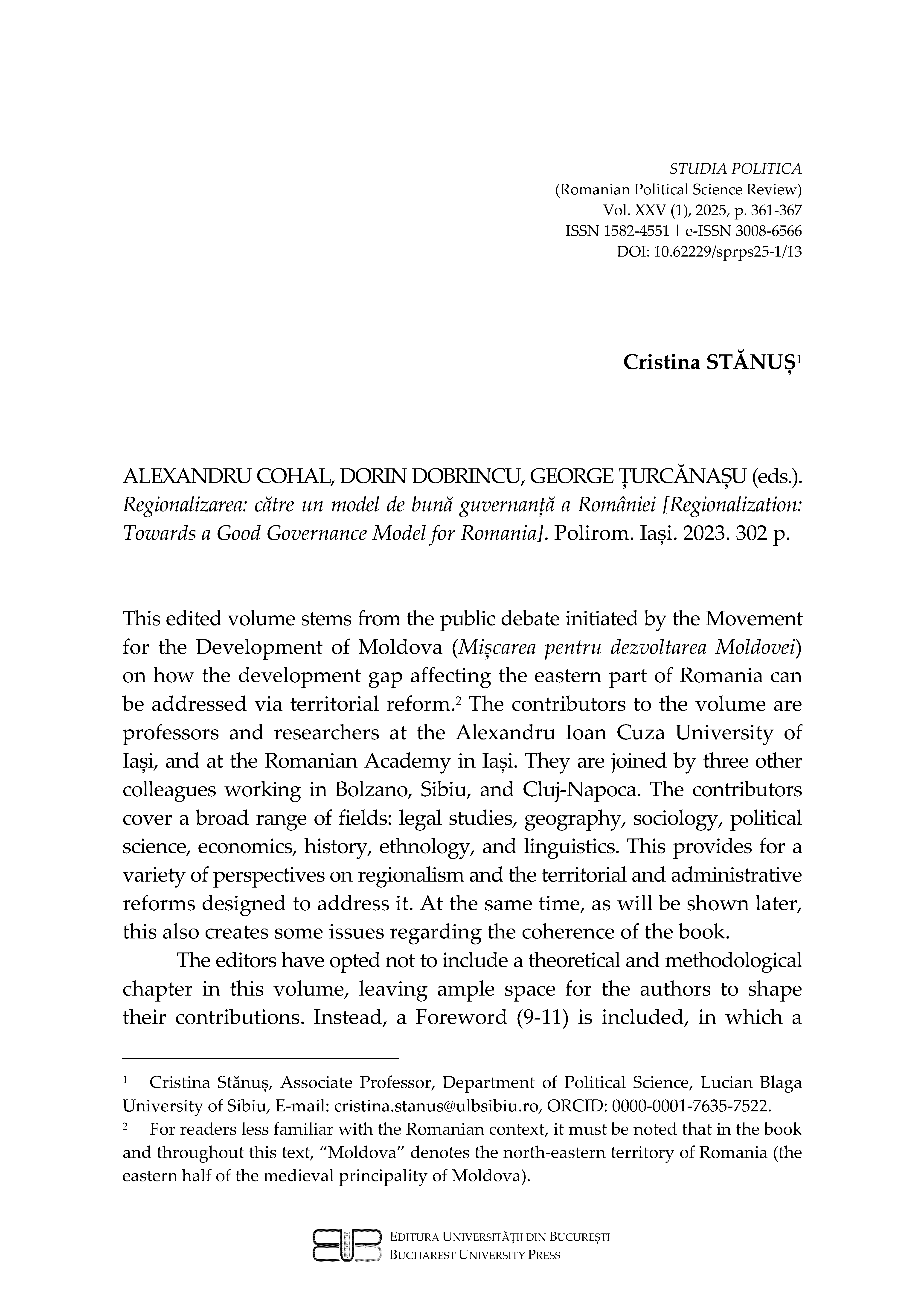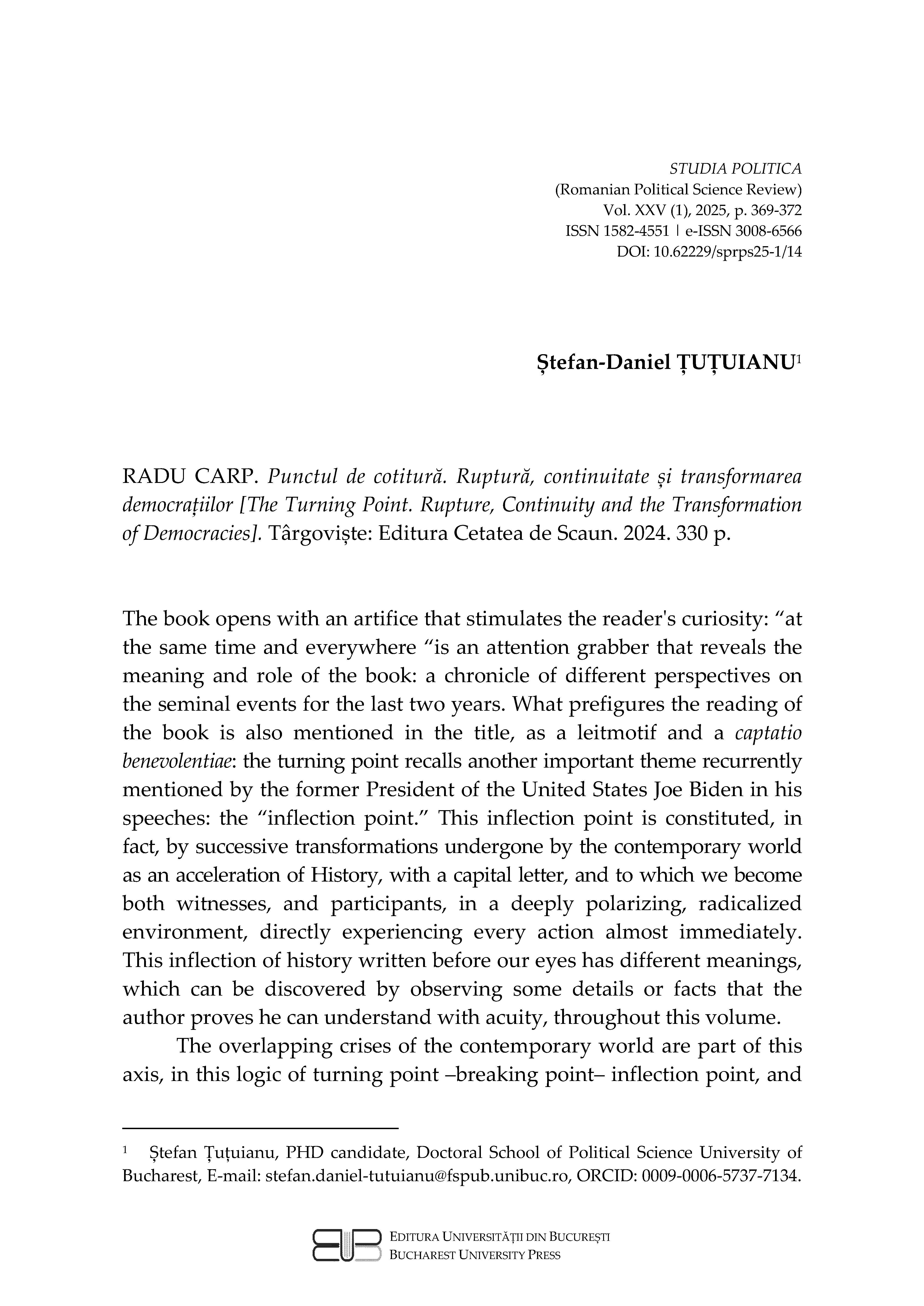Current Call for Papers
Special issue No. 1/2025: In memoriam Daniel Barbu
One year since the passing away of Professor Daniel Barbu, the founder of the journal Studia Politica. Romanian Political Science Review, we would like to pay tribute to his personality and his oeuvre. Therefore, we invite you to submit articles for a special issue highlighting his contributions to the fields of history and art history, philosophy, political science, and political theology, during forty years of scientific activity.
Citește mai multe despre Current Call for Papers
